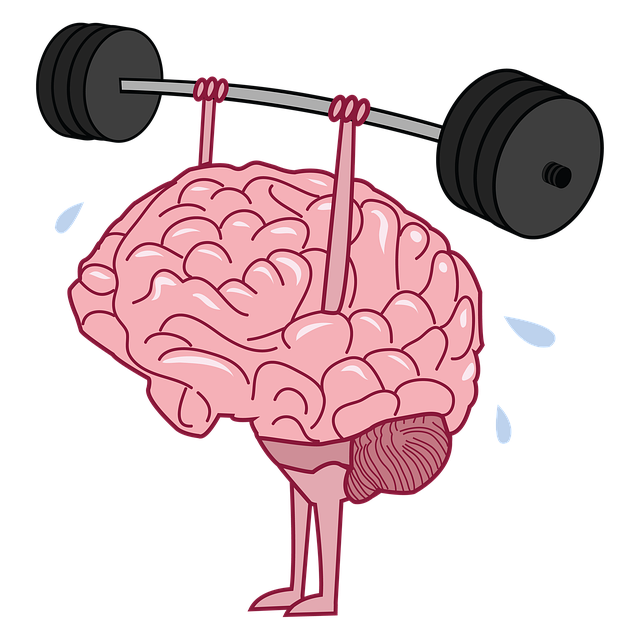Understanding mental health data among elderly victims of domestic violence is crucial for addressing a hidden issue. Stereotypes and stigma often prevent recognition of unique challenges faced by older adults, necessitating early intervention by mental health professionals. Effective therapy requires a nuanced approach considering intergenerational impacts, using risk assessment tools and trauma support services to promote healing in underserved communities. Advanced statistics combined with qualitative insights help identify correlations like stress, trauma, and social support, guiding tailored therapy for survivors. Leveraging data insights can improve therapy and prevention programs, filling gaps and inefficiencies in services, and leading to evidence-based interventions like Compassion Cultivation Practices and Mindfulness Meditation for improved well-being.
Mental health data analysis plays a pivotal role in understanding and addressing challenges faced by elderly populations affected by domestic violence. This article delves into three key areas: understanding specific mental health data in this vulnerable group, exploring advanced analysis techniques for effective support, and showcasing strategies to leverage data insights for enhancing therapy and prevention programs targeted at elders enduring domestic violence. By employing these approaches, we can significantly improve care and outcomes.
- Understanding Mental Health Data in Elderly Populations Affected by Domestic Violence
- Analyzing and Interpreting Data: Techniques and Considerations for Effective Support
- Strategies for Utilizing Data Insights to Enhance Therapy and Prevention Programs
Understanding Mental Health Data in Elderly Populations Affected by Domestic Violence

Understanding mental health data among elderly populations affected by domestic violence is a critical aspect of addressing this hidden issue. The unique challenges faced by older adults in these situations often go unnoticed due to age-related stereotypes and the stigma surrounding mental health, especially when coupled with domestic abuse. Recognizing the importance of early intervention, mental health professionals must be adept at navigating complex narratives and recognizing subtle signs of trauma.
Domestic violence can have profound and long-lasting effects on an individual’s psychological well-being. Elderly victims may present with unique manifestations of trauma, including anxiety, depression, or even cognitive impairments. Effective therapy for elders experiencing domestic violence requires a nuanced approach that considers the intergenerational impact of abuse. By utilizing comprehensive risk assessment tools and trauma support services, mental health professionals can ensure they are equipped to provide the best care possible, fostering Mental Health Awareness and promoting healing in these underserved communities.
Analyzing and Interpreting Data: Techniques and Considerations for Effective Support

Analyzing and interpreting mental health data requires a nuanced approach to effectively support individuals, especially vulnerable populations like elders and those affected by domestic violence. Advanced statistical techniques, such as regression analysis and cluster analysis, can help identify patterns and correlations within the data. For instance, these methods might reveal connections between stress levels, trauma history, and social support networks in elder patients, guiding tailored therapy for Elders Domestic Violence survivors.
Beyond quantitative methods, considering qualitative insights through Mental Wellness Journaling Exercise Guidance can offer deeper understanding of individual experiences and challenges. Integrating Stress Management and Burnout Prevention Strategies for Healthcare Providers ensures that data analysis is not just numerical but also contextually rich, allowing for more compassionate and effective interventions.
Strategies for Utilizing Data Insights to Enhance Therapy and Prevention Programs

Leveraging data insights can significantly enhance both therapy and prevention programs for mental health issues, especially in targeted populations like elders and victims of domestic violence. By conducting a thorough Mental Health Policy Analysis and Advocacy, practitioners can identify gaps and inefficiencies in current services, allowing for more strategic allocation of resources. This involves analyzing trends within the data to understand the prevalence and nature of specific mental health challenges among these groups.
For instance, data might reveal elevated rates of depression or anxiety among elderly individuals experiencing domestic violence, prompting the development of tailored therapy programs integrating Compassion Cultivation Practices and Mindfulness Meditation. These evidence-based interventions have shown promise in reducing symptoms and improving overall well-being. Such a targeted approach ensures that prevention and treatment strategies are not only informed but also optimized to meet the unique needs of these vulnerable populations.
Mental health data analysis plays a pivotal role in understanding and addressing the unique challenges faced by elderly populations affected by domestic violence. By employing robust techniques and considerations, we can gain valuable insights that enhance therapeutic support and prevention programs. Integrating these strategies ensures tailored interventions, fostering improved mental well-being for vulnerable elders. Leveraging data-driven approaches in therapy for elders experiencing domestic violence is a crucial step towards creating more effective and targeted support systems.












